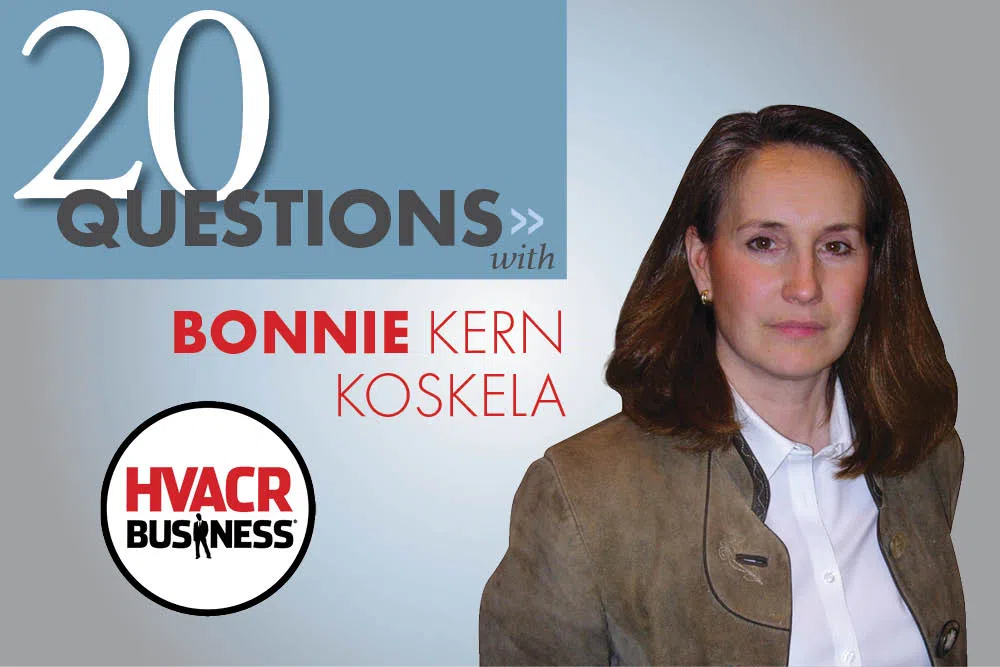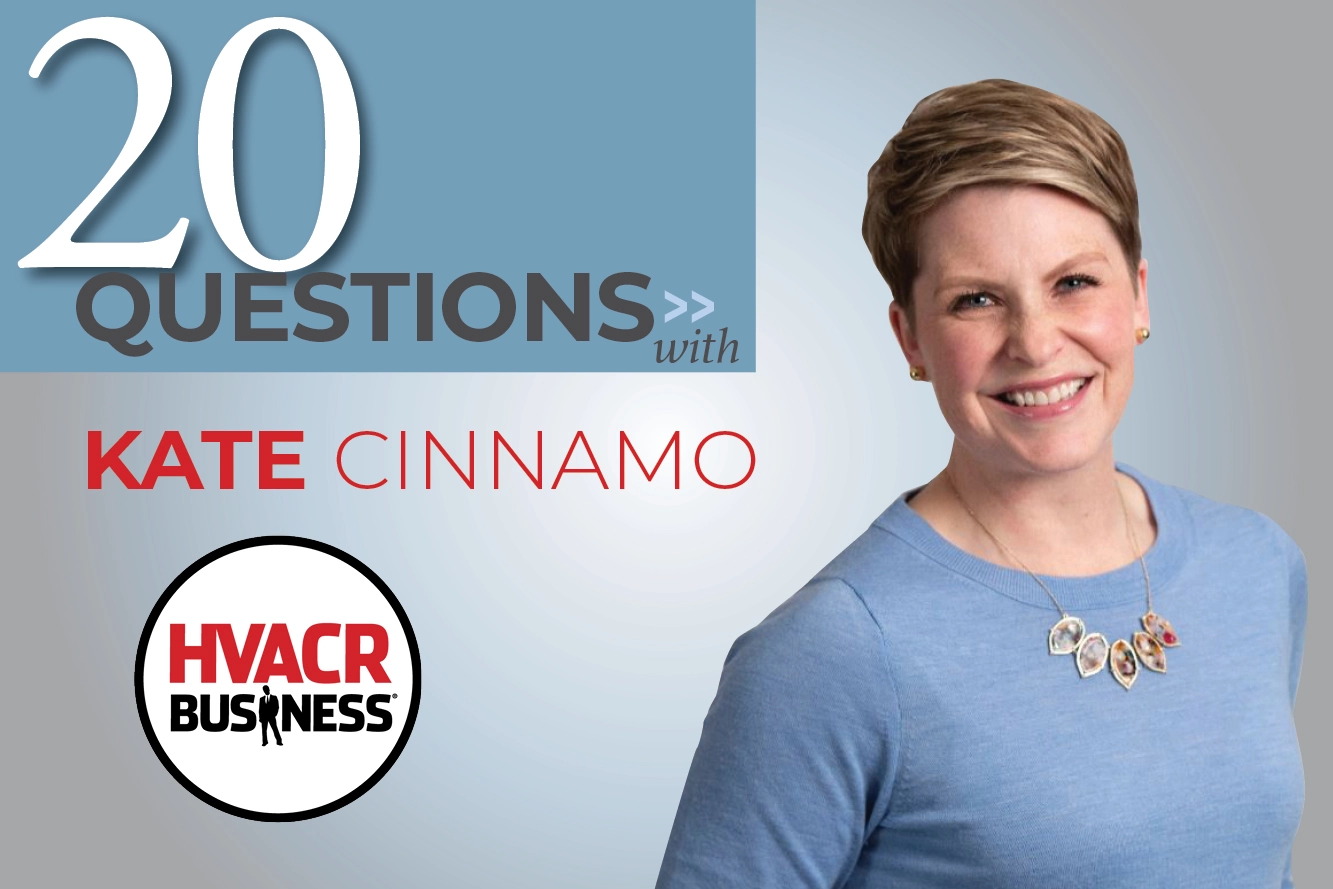Bonnie Kern Koskela, president and CEO of Maxitrol Company, recently spoke with Publisher Terry Tanker about career advice, living abroad, and the decision-making process she uses as leader of the Southfield, Mich.-based manufacturer of gas valves and valve systems.
1. Can you tell me your favorite college story?
Some stories are better left in my memory. I have two teenage sons who would use them as a negotiating edge.
2. You're the second Michigan State University (MSU) Spartan to plead the Fifth; the other was Morten Andersen. Did you two hang out together?
Actually, no we didn't. But I did know of him because of Spartan football games!
3. What are your thoughts about Mark Dantonio, the new MSU head football coach?
He is a Midwest guy and knows MSU. He coached the secondary for six years in the late '90s before becoming the defensive coordinator for Ohio State University when they won the national championship. It's a good fit for him and MSU!
4. Speaking of good fits, what organizational tool do you use most often?
Lotus Notes for scheduling and e-mailing; and SAP [enterprise-resource planning software] for the business operations.
5. What was the best career advice that you were ever given?
My father told me to find a career I like. If you like what you are doing, he said, chances are you will be successful at it.
6. What's the worst career advice you were ever given?
One of my first jobs was working for a small commercial real estate firm. My boss advised me the best way to make a sale was to unbutton my blouse more and jack-up my skirt. I started looking for a new job the same day.
7. You were once responsible for managing a portfolio of real estate for General Motors Corp. (GM). What was that like?
In the early '90s, GM had the second-largest real estate portfolio behind the Catholic Church. I was based in Detroit and traveled throughout North America overseeing a portfolio of commercial and industrial properties. It involved a little of everything from contracts, finance, and management to corporate procedures. It was a very positive experience.
8. How did you expect your career path to develop when you were graduating from MSU?
I studied urban planning with a minor in civil engineering. I wanted to ultimately be involved in the development of planned urban developments.
9. After GM how did you find your way to Maxitrol?
Maxitrol Company had just acquired Mertik Regelungstechnik from the German government. My husband was responsible for the management and transition of the new company. The opportunity opened up for a position with the new management team in Germany.
10. What attracted Maxitrol to Mertik?
The company had excellent R&D potential and sound engineering/manufacturing know-how. They had just developed a new gas combination control that would complement many of our other products. It made sense — they had a good product mix, a very strong development team, and manufacturing/engineering staff.
11. How difficult was the transition for Mertik?
We had to transition a former East German [communist] company to a capitalist-based enterprise. Many of their business relationships were with former communist companies that no longer existed. So a whole new customer and supplier's base had to be created. It wasn't easy because of language and differences in business culture.
12. Do you speak German?
I speak Ger-mish, a combination of German and English.
13. How is your company poised to meet the needs of worldwide sales and distribution of its products?
Maxitrol and Mertik cross-trade products worldwide. Maxitrol distributes to North America and South America, while Mertik distributes to the European Union, Eastern Europe, and Asia. Our products are certified to the applicable standards for each country. We are continuing to expand our sales efforts.
14. Did living abroad help to frame your vision of the world as a global marketplace?
People are the same from one country to the next. Necessities are the same — the need for food, shelter, and utilities. But living abroad does affect your perspective. You must remain open minded. Business is conducted differently in Europe, and cultures and customs vary greatly; but I have not found it to be negative. It's important to have a good product mix that can accommodate our customers' technology requirements worldwide.
15. What is the best thing about living abroad?
Each country has a unique culture and history. In Europe you can travel for five hours and be in a completely different world.
16. What is the worst thing?
Europe has a long history and because of the past, they sometimes have a tendency toward cautiousness. It's easy to assume this is inflexibility when it may not be. It's not unusual for things to take longer.
17. Did you find the progression to higher levels of authority and responsibility to be an easy process or more difficult than you may have expected?
As you progress through different levels of responsibility, you're always learning, and you're not thinking of how easy or difficult the decision is. You go through your own process and take the necessary action.
18. So experience is the key factor?
Yes, for most people it is. You make decisions more cautiously early on because you don't want to make a mistake. Mistakes are sometimes the framework for new ideas. With experience, you're able to make the decisions more quickly and accurately.
19. Is your decision-making process still evolving?
It never stops. However, now I'm not as concerned with making a mistake as I am making a decision. The main reason for this is the consistency of having a goal, strategy, objective, and business ethics.
20. Can you name a few business practices that have serve you well?
Be consistent in your decision-making process. This should include sound business practices for your customers and vendors; and bottom-line commitment to quality products and services. In addition, your employees are a fundamental part of your organization. It is important to take responsibility for your employees with regards to their health or well-being, business culture, and future career-growth possibilities.






